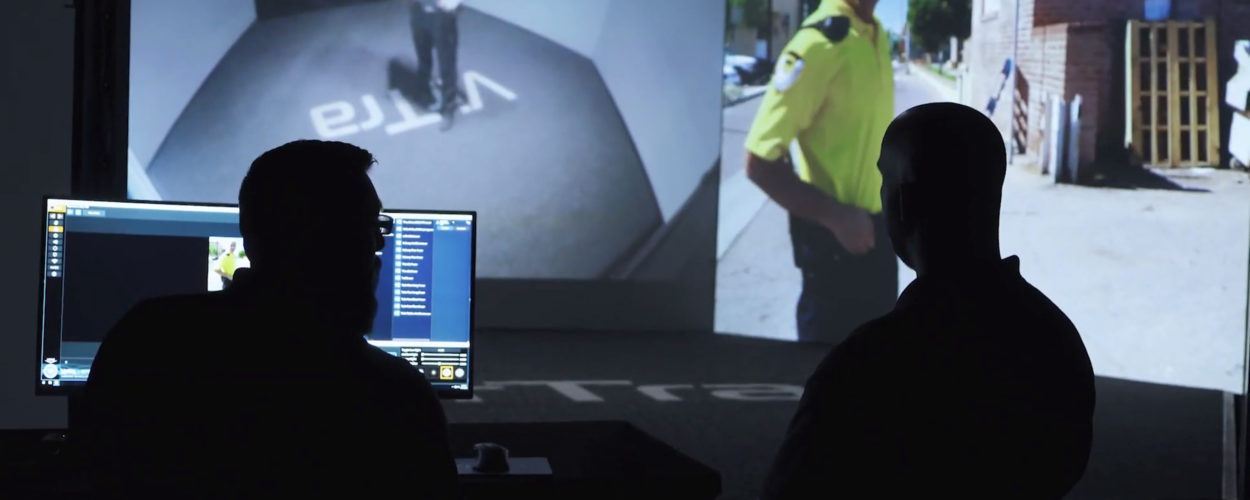
As an instructor, it is your duty to train and prepare officers in a variety of skills designed to perform in the field. After all, skills ranging from contact and cover protocol to recognizing and reacting properly to subjects with mental illness may all potentially save a life.
But after training is said and done, how do you ensure officers will retain and utilize this information when it is needed most?
Written Tests
Issuing a written test after the training regimen allows instructors to test the officer’s knowledge while creating proof that the officers knew the concept and passed the curriculum. VirTra recognizes the importance of testing and incorporated it into our V-VICTA™—Virtual Interactive Coursework Training Academy—program.
This program is specifically designed to teach, train, test and sustain officers on critical topics, such as: Autism Awareness, Mental Illness for Contact Professionals, Active Threat/Active Killer and more.
To begin, trainees engage in a pre-test prime their mind to learn the information about the given topic. Pre-tests are a teaching tool, that ready the mind to learn information that will be taught in the class. After, instructors then teach the concept through a combination of PowerPoint presentations, lectures, videos, scenarios and so forth, keeping officers engaged.
Each V-VICTA curriculum comes with corresponding scenarios, allowing officers to practice the newly learned skill in a real-life situation. Instructors can utilize this as another form of hands-on learning the concept while simultaneously testing the officer. After, instructors can issue the V-VICTA post-test to have a written record of the officer’s understanding of the course material.
Scenario-Based Tests
As touched on in the section above, scenarios are an efficient way of teaching and testing an officer in a realistic situation. Each VirTra scenario has an average of 85 branching options, allowing instructors to change the situation depending on the officer’s choices and producing an individualized scenario for each officer.
Another helpful scenario teaching and testing tool is the TMaR—Trainee Monitoring and Recording—accessory. This picture-in-picture recording system equips the simulator with a camera and microphone, each of which record the trainee. After the scenario is complete, the instructor and officer can review the footage and scenario together to see what the officer saw, reacted to or discharged their weapon at in any given time.
By implementing TMaR, instructors have another way of analyzing an officer’s movements, and therefore, create a better discussion on decisions, actions and stances made in the simulator.
VirTra does more than create state-of-the-art training simulators. We create a well-rounded training experience. Learn more about how V-VICTA, TMaR and other programs and accessories can teach, train, test and sustain your department by contacting a VirTra specialist.
Recently Published
Join Our Newsletter







